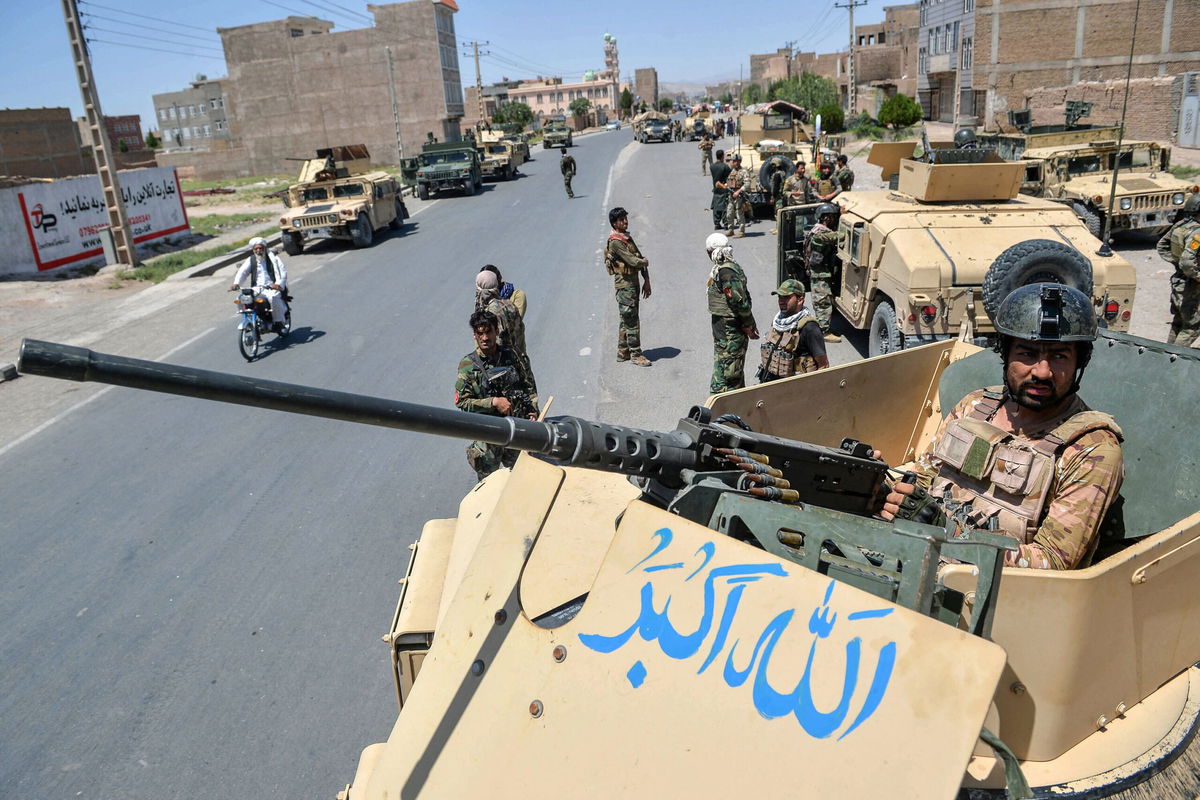Taliban hunting down Afghan allies as US withdrawal continues

US airstrikes pound Taliban positions as militants threaten key cities in Afghanistan. This image shows an Afghan National Army commando in Herat province on August 1.
By Nick Paton Walsh and Tim Lister, CNN
The United States has ramped up airstrikes against the Taliban in a bid to turn back the militants’ advances on a number of key provincial capitals in Afghanistan, a senior Afghan security official said Monday.
Over the past 72 hours, US airstrikes have targeted Taliban positions around the cities of Herat, Kandahar and Lashkar Gah, the official said.
“They strike multiple times when the Taliban try to enter the city,” the official said, adding that the three cities were considered “endangered” by Taliban advances.
American officials have recently confirmed that US airstrikes are active in Afghanistan again, yet declined to provide details of the targets.
The weekend saw heavy fighting between the Taliban and Afghan government forces in Lashkar Gah, the capital of Helmand province. The Taliban now control several districts of the city, according to local journalists contacted by CNN.
Lashkar Gah sits on strategic routes in all directions, including the highway between Kandahar and Herat and important agricultural areas to the south of the city. The Taliban has long had a strong presence in Helmand province, including around the capital, but has not occupied any part of the capital since being overthrown in 2001.
The Afghan military reinforced its presence in the city on Saturday, bringing in special forces, according to a tweet from the 215 Corps, an army unit. It also carried out airstrikes against Taliban positions.
If Lashkar Gah were to fall to the Taliban it would be the first of Afghanistan’s 34 provincial capitals to be lost by the government. But several others are surrounded by the Taliban, which also controls several major highways across Afghanistan.
The province of Herat — in northwest Afghanistan — is another area that has seen heavy fighting. The Ministry of Defense tweeted Sunday: “Hundreds of special forces arrived in Herat province! These forces will increase offensive operations and suppress the Taliban in Herat. The security situation in the province will improve soon.”
In an apparent acknowledgment of the seriousness of the situation in Herat, the Ministry of the Interior said that the deputy interior minister General Abdul Rahman Rahman had arrived there with police special forces.
Videos that appeared Saturday indicate that the Taliban now control the road linking the capital — also called Herat — with its airport. A local journalist told CNN Sunday that the Taliban has control of much of Goazara district near the airport, and has also taken Karoakh to the east.
The airport itself remains in government hands.
US withdraws, Taliban steps in
After nearly 20 years in Afghanistan, the US military, at President Joe Biden’s direction, is in the final stages of withdrawing troops from the country, bringing an end to America’s longest war.
The Pentagon has said about 95% of US troops have left and the Taliban have rapidly expanded their presence to large swaths of country. The speed at which Afghan security forces have lost control to the Taliban has shocked many and led to concerns that the capital, Kabul, could be next to fall. All foreign forces are expected to leave Afghanistan by August 31.
According to the Long War Journal, a US non-profit which tracks control of territory in Afghanistan, the Taliban now controls 13 of 16 districts in Herat province. Most of its gains came in the month of July.
Nationwide, the Taliban controls 223 districts, with 116 contested and the government holding 68, according to the Long War Journal, whose calculations tally with CNN’s estimates. It says 17 of 34 provincial capitals are directly threatened by the Taliban.
The vast majority of Taliban gains have come since the US drawdown of forces began in May, after President Biden’s announcement that all US combat forces would leave Afghanistan by the end of August.
Bill Roggio, who edits the Long War Journal, said Saturday that “the withdrawal of US air assets, which provided more than 80% of the combat power to battle the Taliban, and civilian contractors to provide maintenance, along with combat attrition, has put an enormous strain on the Afghan Air Force.”
The worsening security situation across Afghanistan in the wake of foreign troop withdrawal and Taliban advances, has forced an estimated 294,000 from their homes since January, the United Nations Refugee Agency (UNHCR) reported on July 21, bringing the total internally displaced to more than 3.5 million.
The-CNN-Wire
™ & © 2021 Cable News Network, Inc., a WarnerMedia Company. All rights reserved.